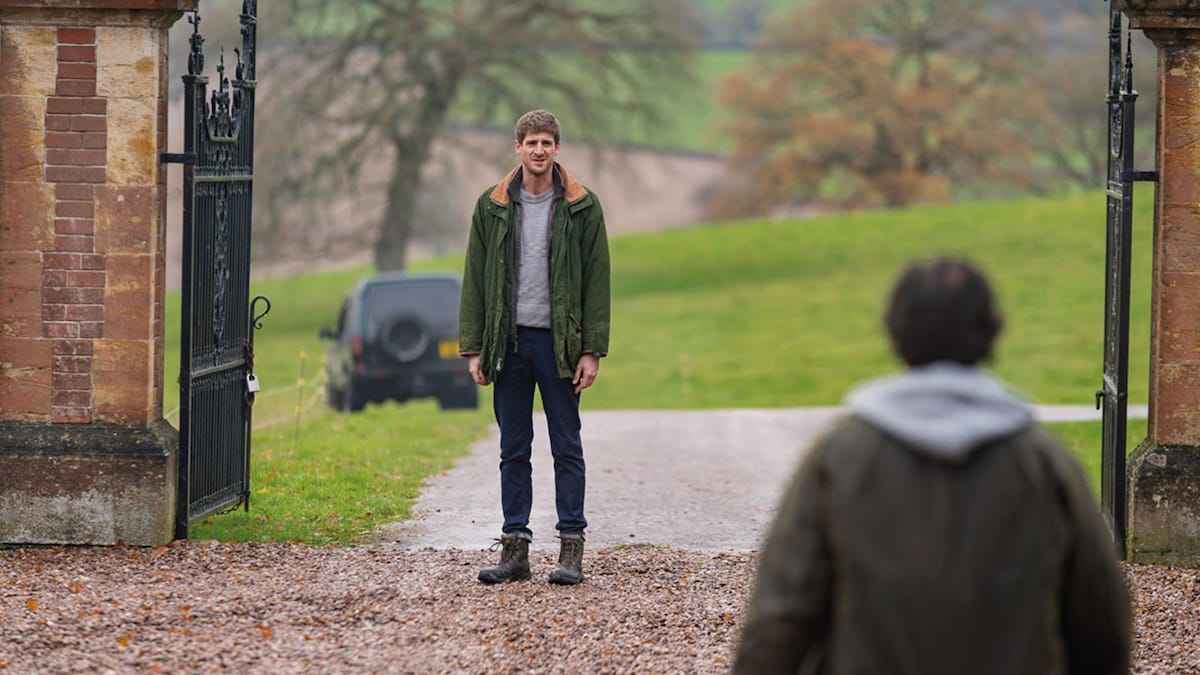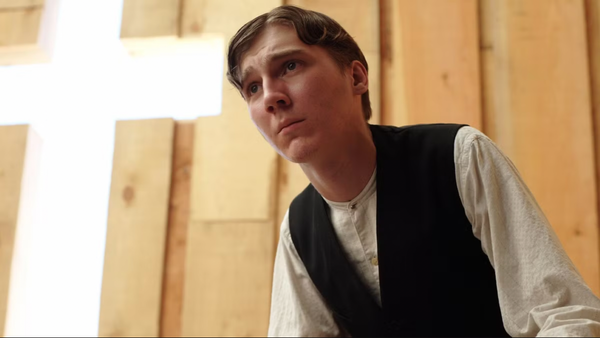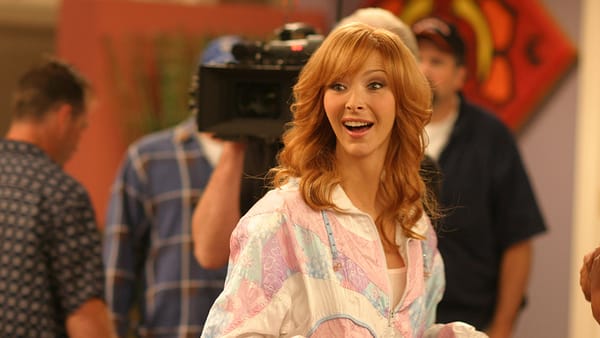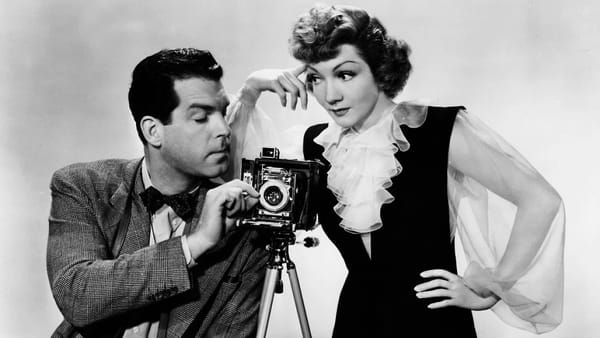Cringe When You're Winning

Toothless satire and punching down in All My Friends Hate Me
Much of UK-made cinema from the last few years has felt increasingly unimaginative. On one side, you have the feel-good, Richard Curtis-esque comedies, the Downton Abbeys and WWII adventures, invariably starring any number of Colin Firth impersonators. On the other, you have the UK’s independent filmmakers: a small army of young, early-career directors lauded every year, usually (but not always) funded by the BFI or some cultural organisation’s funding pot.
We can reliably put the Downton Abbey stuff to one side – it is what it is. But one would expect the independent stuff to be where we can find the more imaginative, interesting visions from the UK. Instead, we have All My Friends Hate Me.
This is an entirely independently-produced film, a lo-fi bootstrapped project made by a group of friends working together. And yet, despite such humble beginnings, the film is entirely bloodless and anodyne. Ostensibly targeting classism, All My Friends Hate Me singularly fails to examine its own inherent prejudices at every turn, resulting in a film that purports to be right-on but in fact embraces a misanthropic view of the world.
The plot sets itself up as a cringe comedy riffing on class guilt and social anxiety, as we follow Pete (Tom Stourton), a millennial reuniting with some (extremely well-off) university friends for his birthday, visiting the massive manor house of one of the gang. Whilst there, he grows convinced that they’re all out to get him in increasingly preposterous ways, particularly through the mysterious interloper Harry (Dustin Demri-Burns), whom the gang pick up at the local pub and who proves particularly adept at needling and annoying Pete.
Mixing comedy with horror beats, the film builds towards Pete’s total breakdown. Having moved away from his Home Counties university friends to Manchester with his working-class girlfriend, he now has a job working with a refugee charity. The stories he tells of his university days suggest an impressionable first-year student, game for any of the stupid pranks and cruelties that fester in the hardcore drinking culture of British universities. However, it also becomes clear early on that Pete’s attitude to life has since changed from that of his old friends, who are still stuck with a mindset that encourages bullying and “banter.” That sense of alienation from people he once felt close to contributes to Pete’s slow unravelling.
But the film hedges its bets every step of the way, in a grossly dishonest manner. An early scene with an eccentric local – who turns out to be the manor groundsman – sets up Pete to make an obnoxious fool of himself later on in the film. And yet, it’s a perfect example of the film’s innate classism: at first, we’re meant to laugh at the groundsman, every inch the rambling, nonsensical village weirdo of urban upper-class myth; but later, we’re suddenly supposed to empathise with the stranger because Pete makes fun of him. This kind of have-your-cake-and-eat-it attitude permeates the film.
Of course, part of the goal here is to reveal Pete’s own classism – though he may have shifted away from the hazing of his uni days, underneath, the prejudices are still there – but the film continually sabotages its own character assassination project. Pete’s anxiety leads him to construct a narrative where he believes his friends are out to get him, and whilst this isn’t exactly true, the fact remains that they are shitty friends who aren’t above resorting to bullying or casual abuse to get their way. Nevertheless, the film continually sticks the needle into Pete, often specifically mocking him from his friends’ point-of-view, which it implicitly shares.
In fact, the idea of a former toff going up t’north, shacking up with a northern lass and working in charity feels more like every Tory’s idea of a champagne socialist than it does a flesh-and-blood human being. Even after Pete’s breakdown, which reveals some deeply unsavoury childhood trauma (inserted more to juice up the script than to deepen the character), the film entirely lets him and itself off the hook in its final moments.
Perhaps all of this is simply a roundabout way for the film to admit that its whole purpose was to bully the protagonist before pulling out at the last moment, letting its critique of bullying toff ways devolve into the idea — much easier to swallow — that Pete is a hypocrite who is just as bad as his awful friends. There’s a fertile history of cringe comedy in this country, be that Alan Partridge or The Office. But the key to these shows is that, even as we watch aghast at the naffest mutterings of Alan or David Brent, there is the sense that we are somehow both laughing at them and with them. They are entirely oblivious to their own ridiculousness, to the point where we want them to succeed in their tiny, petty ways. Pete, however, seems to be somewhat aware of the awkwardness of his situation, the inadequacy of his efforts, and the discomfort of his entire identity and history, yet the film punishes him for having this kind of introspection, making him the object of mockery at every stage.
Had it remained an independent production gently turning up at film festivals for a year or two before it appeared on some streaming service or other, All My Friends Hate Me would have been easy to ignore. However, it was recently released in UK cinemas by the BFI — and just by dint of that fact, it feels pertinent to ask why.
It’s hard enough being an independent filmmaker in the UK without all the infrastructural and financial challenges thrown your way when trying to raise the budget necessary for a feature. Scratch beneath the text of All My Friends Hate Me to closely look at the wider model that built the film, and what emerges is a primary text of what one might call ‘rich kid art’: though the film may be a low budget affair, consider that the location manager (and executive producer) also happens to be part of the family that owns the manor the film is shot in. In and of itself, that doesn’t make the film classist, but there is little sense of risk-taking or self-reflection to engage with here.
The film’s path to completion is a little different to the norm. Most films that edge towards the arthouse/independent end of the UK market aim for some sort of state-level funding or support, via the BFI, National Lottery funds or any such organisation. Despite the ostensibly more ‘arts’-minded thinking behind these orgs — funding films not for commercial reasons but for cultural ones — the cultural-org route comes with its own set of expectations, linguistic tics and tricks, and requirements, privy to the same blind spots that many of the UK’s cultural institutions already have.
The sort of films and filmmakers with the most chance of succeeding in these spaces are those which already know how to speak to these organisations in language they find approachable. Such filmmakers often begin their careers making numerous shorts before graduating to a first feature that sometimes feels like it’s been run through years of script development.
Last year, in the wake of the release of Prano Bailey-Bond’s Censor, Caspar Salmon argued in The Guardian that the UK film industry is failing its early-career talent, with so many promising debuts followed up by years of crickets. Even in the case of Censor, which I really liked, I agree. But the issue is not just the years it takes to make a follow-up: in most cases, it takes many years to make the first one, too. Many reviewers at the time remarked on how Censor built on the promise of Bond’s preceding short, Nasty, which was made in 2015(!!!). That’s a full six years to get from short to feature, a simply unnatural gestation period. After over a decade of cuts that have simply decimated arts funding, filmmakers without a commercial mindset simply aren’t in a place to just make a film anymore — so much time has to be spent fighting for funding and raising money that when those films do arrive, they feel as if any sense of chaos, alchemy, improvisation and imagination has been lost in the process.
In this case, All My Friends Hate Me and its low-budget, independent production route (ignoring as it did the usual state-funded development routes) at least posits a model where complete freedom is at hand, where filmmakers can afford to take risks both formally and in terms of storytelling, shorn even of the polite-minded expectations for naturalism that are commonplace in BFI-backed projects. Why then, does the film feel so milquetoast?
The answer, I think, lies both in the unchecked assumptions of the filmmakers and in the wider infrastructural issues plaguing British cinema. In and of itself, there is nothing wrong with making a not-very-good film with your friends. Failing and making mistakes is a key part of the artistic process, and the UK film world needs to allow its filmmakers a space for error. But given the fact that this is a film which singularly fails to take any risks at all, one has to wonder what was the appeal in giving it the platform of a distribution deal. It is safe, unimaginative filmmaking, backed up by a nasty-minded classist streak. Bar some rare exceptions, art is only ever a reflection of the society in which it’s made; perhaps the answer lies there.



